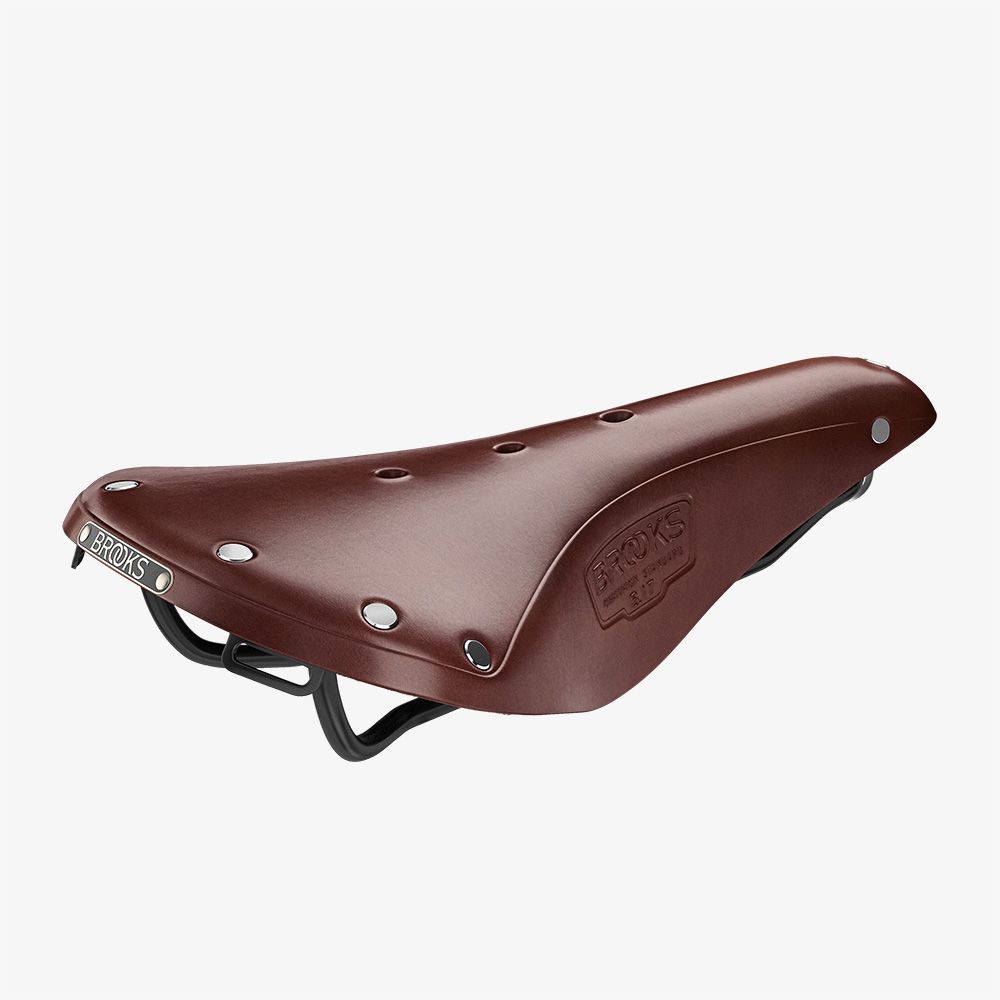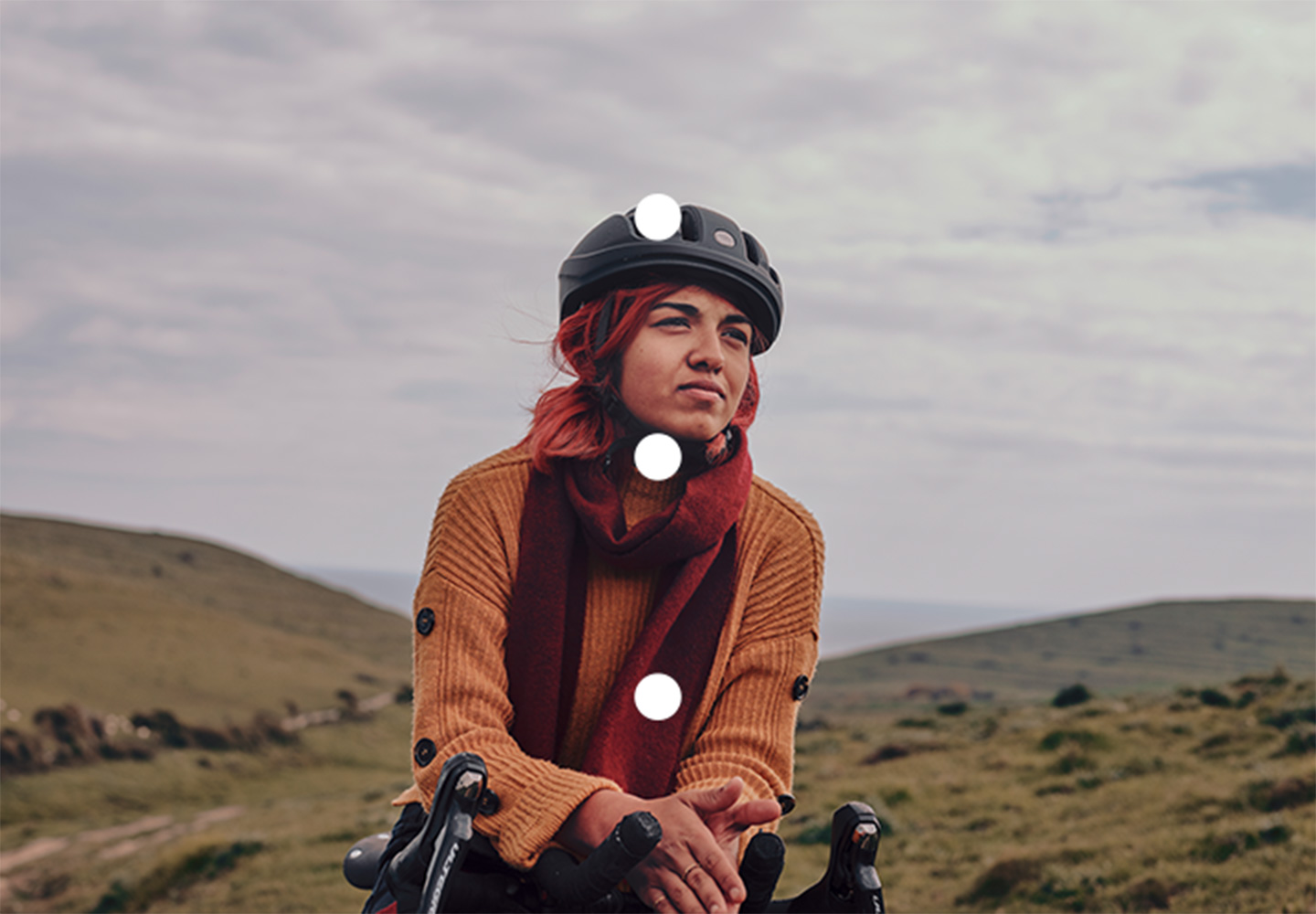
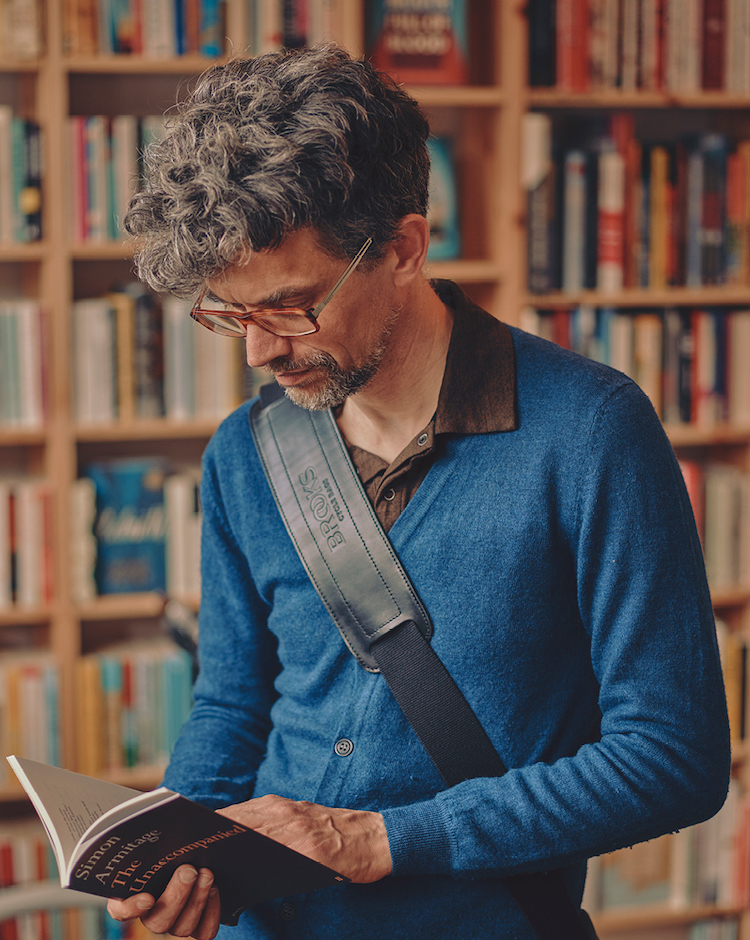
People
Mind is the Ride, with Jet McDonald
A journey through cycling and philosophy
By Jim Holland
The bond between man and machine is an inexplicable one, especially in the case of the bicycle. Not only does it help us to explore the inner workings of our body and mind, but it also encourages us to explore, discover and further our understanding of the world around us. Unless we stop to admire what the bicycle gives us, the physical and intellectual freedom that it offers goes unrealised and unfulfilled.
Jet McDonald explores these ideas in his book, Mind is the Ride, piecing together a commentary on a capitalistic world through the medium of the bicycle. From familiar Bristol to far-east India, journeying across the divide between two starkly different philosophies, Mind is the Ride strives to better understand our relationship with the world around us, not only as part of an intellectual venture, but one that incorporates the whole picture, both physical and emotional, wretched and joyous.
Mind is the Ride can be purchased here or seek it out in all good independent bookshops. We sat down with Jet to find out all about his own journey through cycling and philosophy.
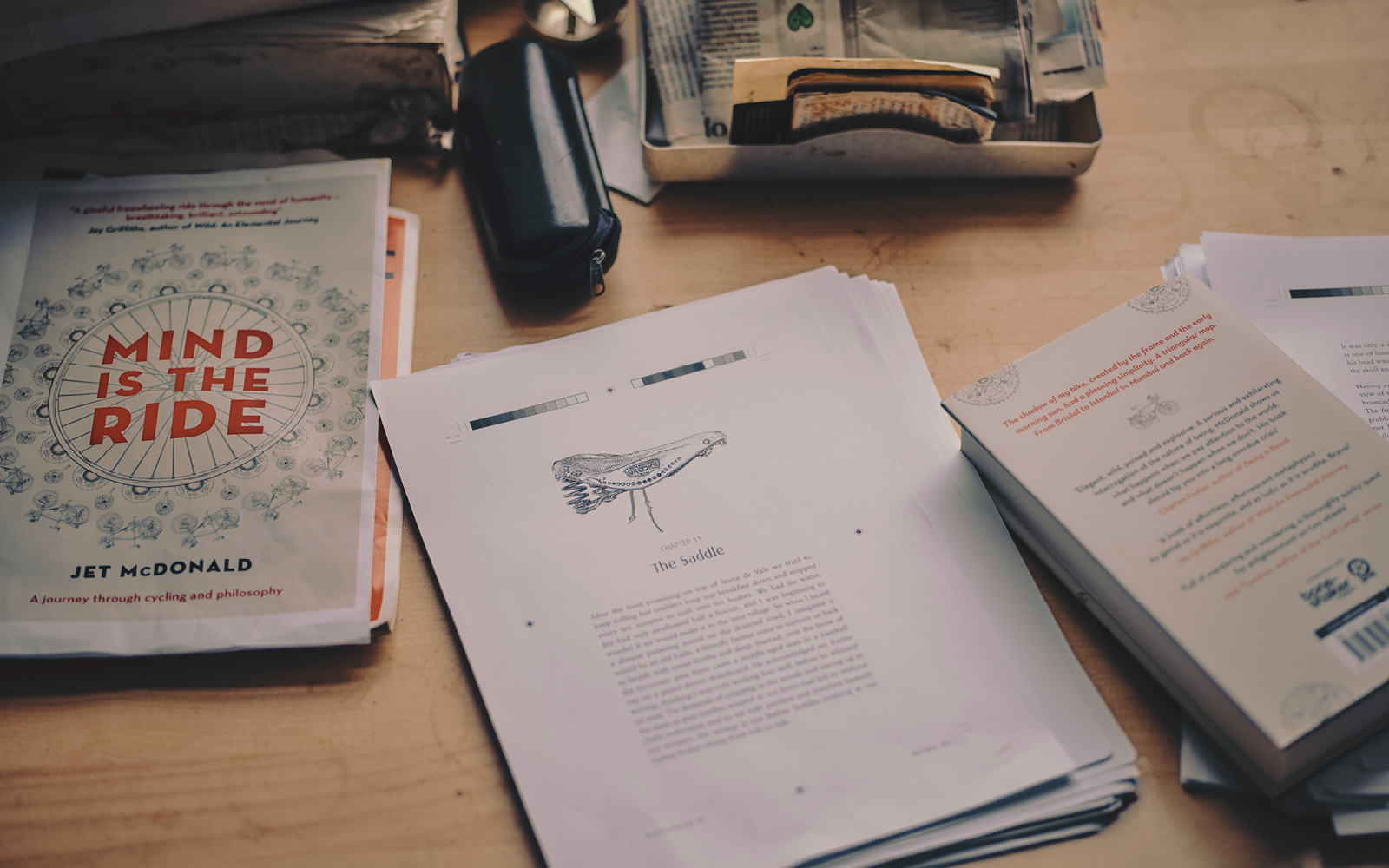
Where did you grow up and when did you start cycling?
I grew up in Dorset and probably started cycling when I was five or six. There was a park just at the end of the road from where I lived with some pine trees and lumps we called the ‘camel humps’ – I spent a lot of time going up and down on my Chopper bike and falling off a lot.
What was it like growing up in Dorset where it can seem like there’s not much to do?
Well, I grew up in Bournemouth, so I suppose I’m fond of the place but it’s not somewhere I found rich in culture. In a way, cycling offered an escape from urban Bournemouth into a world beyond. I eventually managed to free myself and escape to Bristol. Then I went further and further and ended up in India.
I suppose that’s the kind of unique freedom the bike offers. You can do almost anything; you’re only limited by how much energy you’ve got.
Yeah, I think the bicycle extends the possibilities of what we think we’re capable of in ways we sometimes don’t even realise. I think it’s so mechanically efficient it expands what we’re capable of physically. But my own take on cycling is that it also extends our understanding of the world. It changes our physical relationship to our environment so it helps us connect with it in a different way. It offers freedom both physically and intellectually in ways we don’t realise. It may sound pompous, but I think when people come back and say, “that was a great ride”, lots of things happened in that ride that have changed them in ways that they don’t even realise. That’s what I explore in my writing.
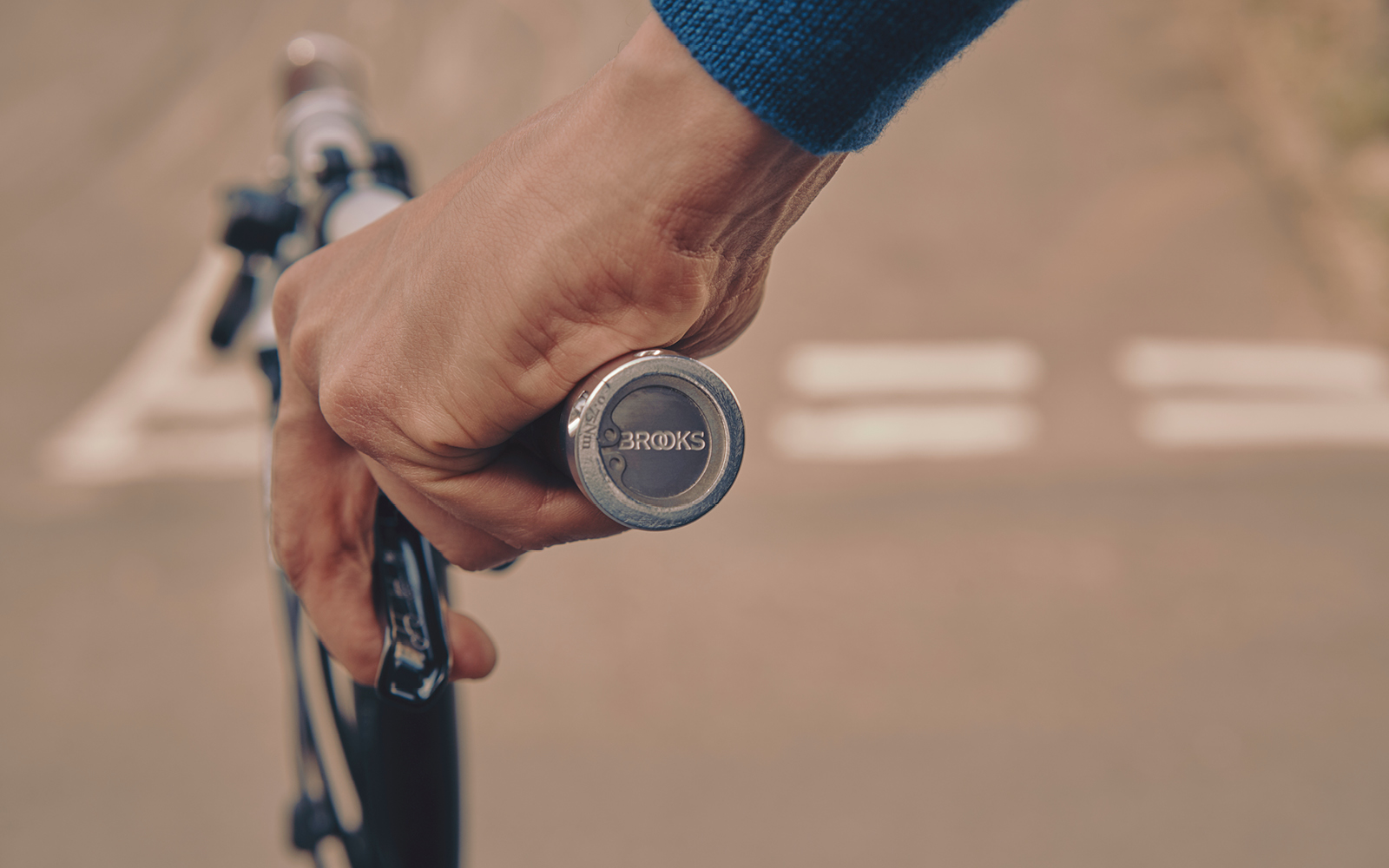
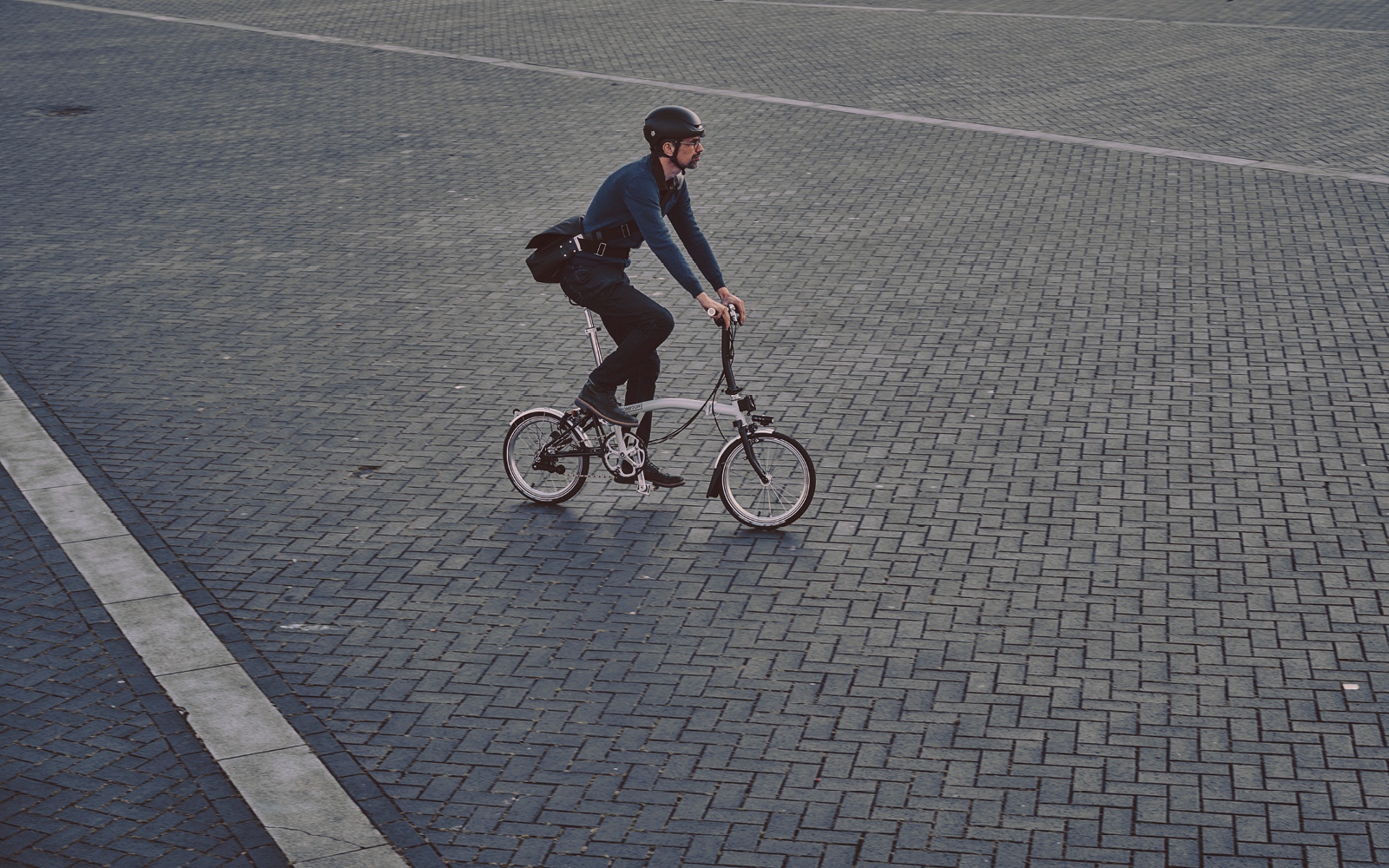
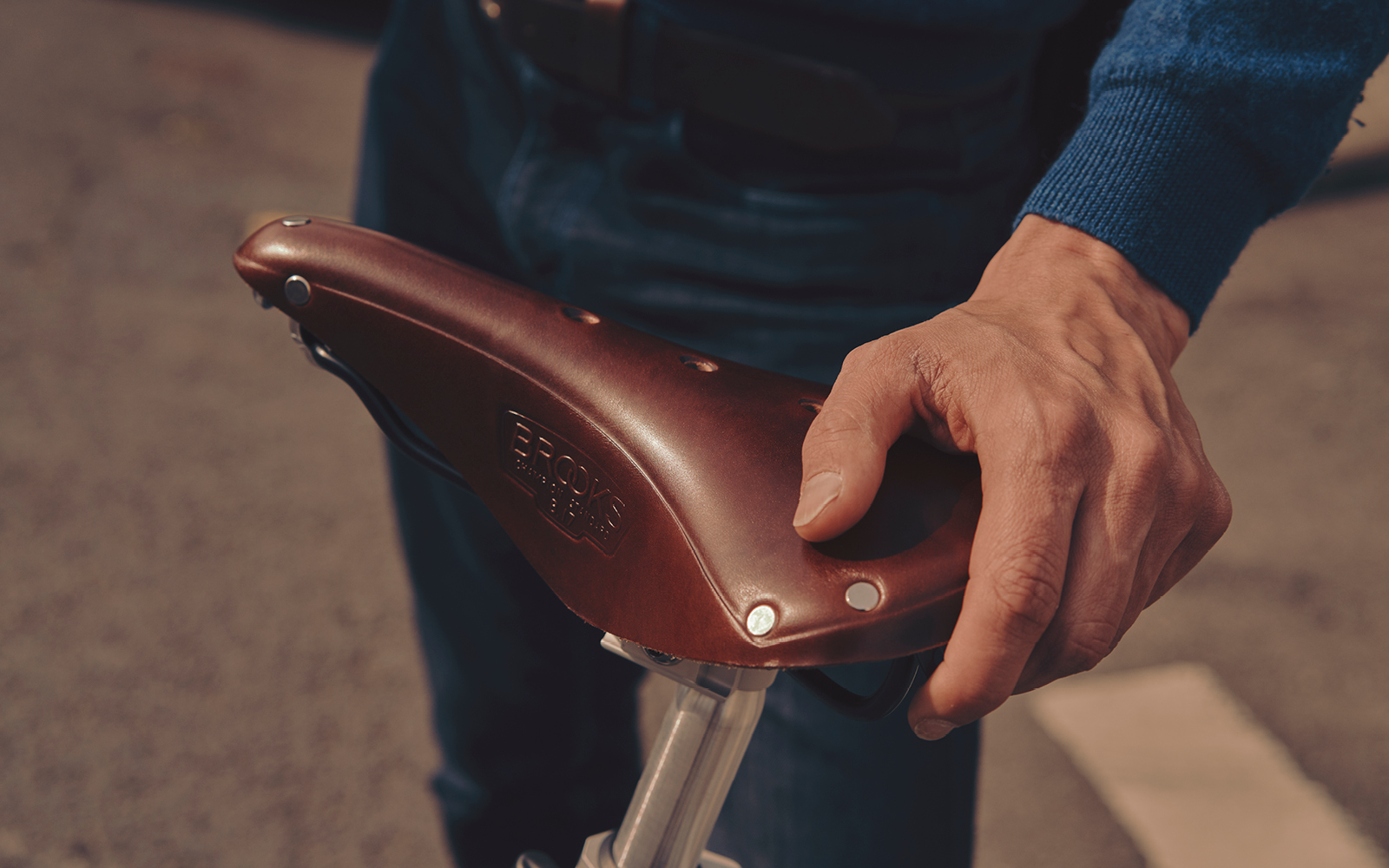
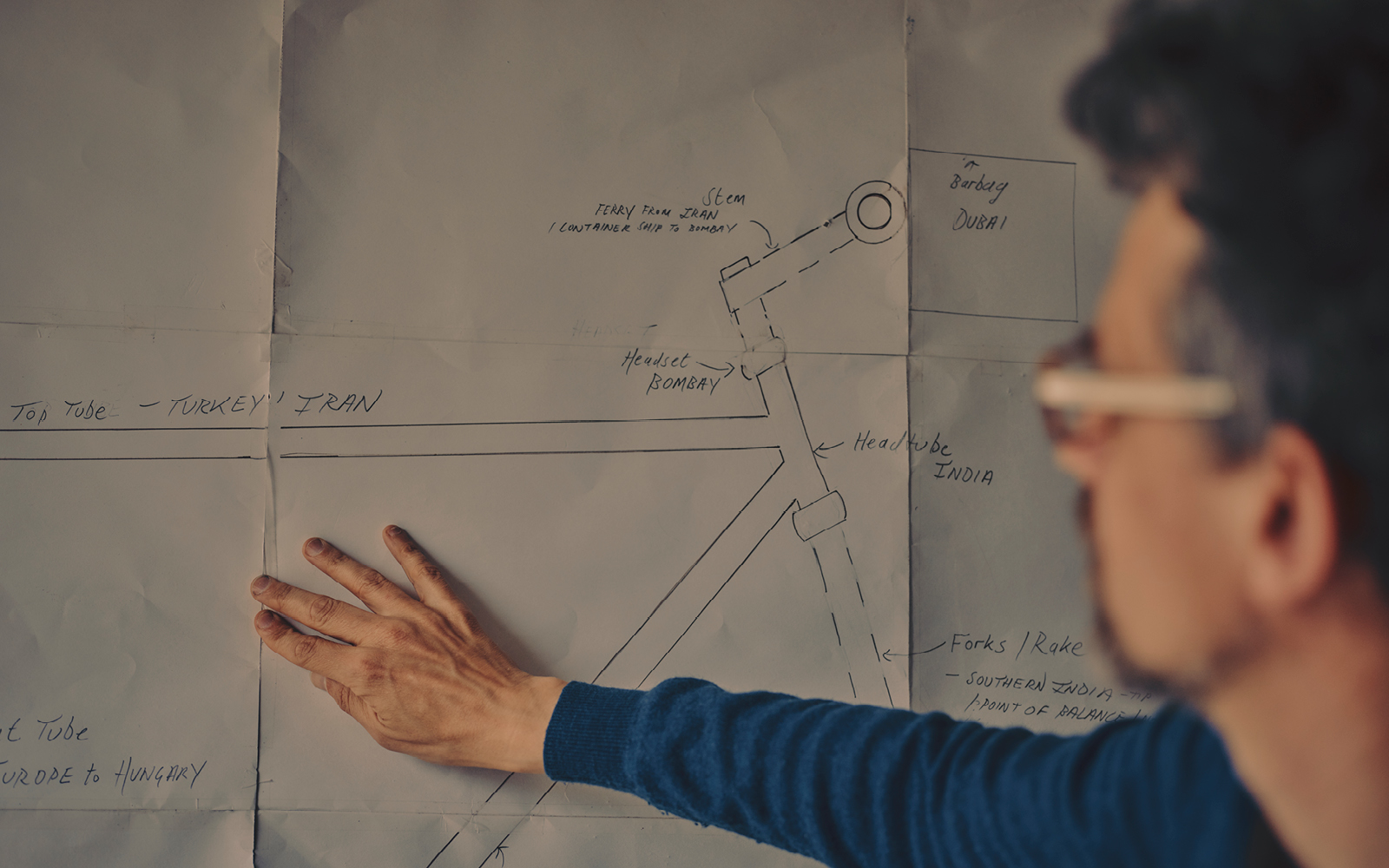
What do you think brings about this meditative state? Is it the repetition, the inertia, the escape?
There are so many things, I think. I’m a road cyclist and have done a lot of touring but you can experience that meditative state with any type of cycling. On the school run rush-hour ride it’s harder to do, but when you’re cycling thousands of miles across continents it becomes easier to get into that headspace. For example, when we were cycling Turkey’s long roads and through massive mountains, nothing seemed to change as we were moving, yet we were always making progress. There’s something unique about cycling in that you’re still in one sense but you’re moving at the same time – you’re at the centre of a mental stillness that is moving.
I suppose there’s something about the repetition – the road, its markings, the sound of the tyres – that can carry you into a meditative space, but it’s a unique state because we associate meditation with being still. It’s a kind of mechanical stillness and movement that you don’t really get in any other form of exercise or transport.
Do you think doing long journeys day-in day-out provokes a different mental experience to going out a few times a week?
I think it does, but that doesn’t mean that you lose it if you’re going out a few times a week and commuting to work, you just experience it in a different and maybe less extended way.
I think the kind of crazy, but very sane people, who go on long bike rides across the world are almost going on pilgrimages. There’s something monastic about the idea of cycling for seven hours a day and burning enormous amounts of calories. You become this kind of fasting hermit being propelled across the land. That process of pushing yourself to the absolute limit physically within this meditative circle gives you experiences you can’t get any other way. That kernel of the experience is with you whenever you cycle, but I’m not pretending that you’re going to reach the same level if you nip to the shops for a can of baked beans.
Was this something you were aware of before you went out to India, or did you come across it along way?
It was both really. I kept a diary, but I wasn’t writing “I’m having a freewheeling meditative Buddhist experience right now”. I was writing about the change that I was experiencing as I saw the world on a bicycle. I came back and I thought it would be interesting to explore those experiences more deeply, digging into what ancient and contemporary philosophy could tell us about them. I recognised there’d been a change in me when I’d been travelling and when I came back, I used philosophy to help me to understand those changes. That’s not just eastern philosophy; western philosophy deals with our understanding of the world as well. To perhaps over-simplify it, western philosophy has a more ‘cerebral’ take, an intellectual analytical approach, whereas eastern philosophy has a more physical, intuitive way of understanding the world. When I wrote the book, I used aspects of both to understand some of my experiences.

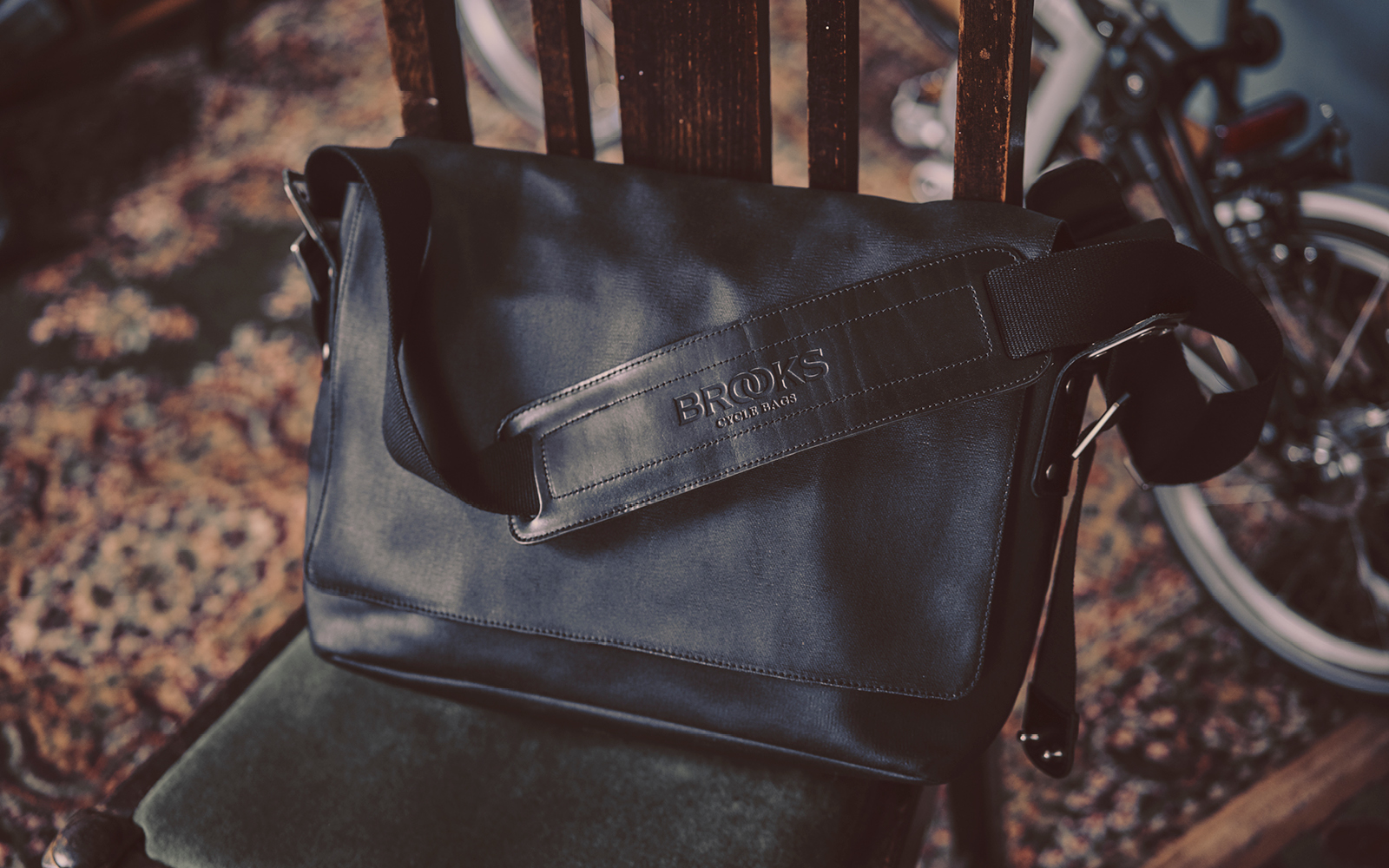
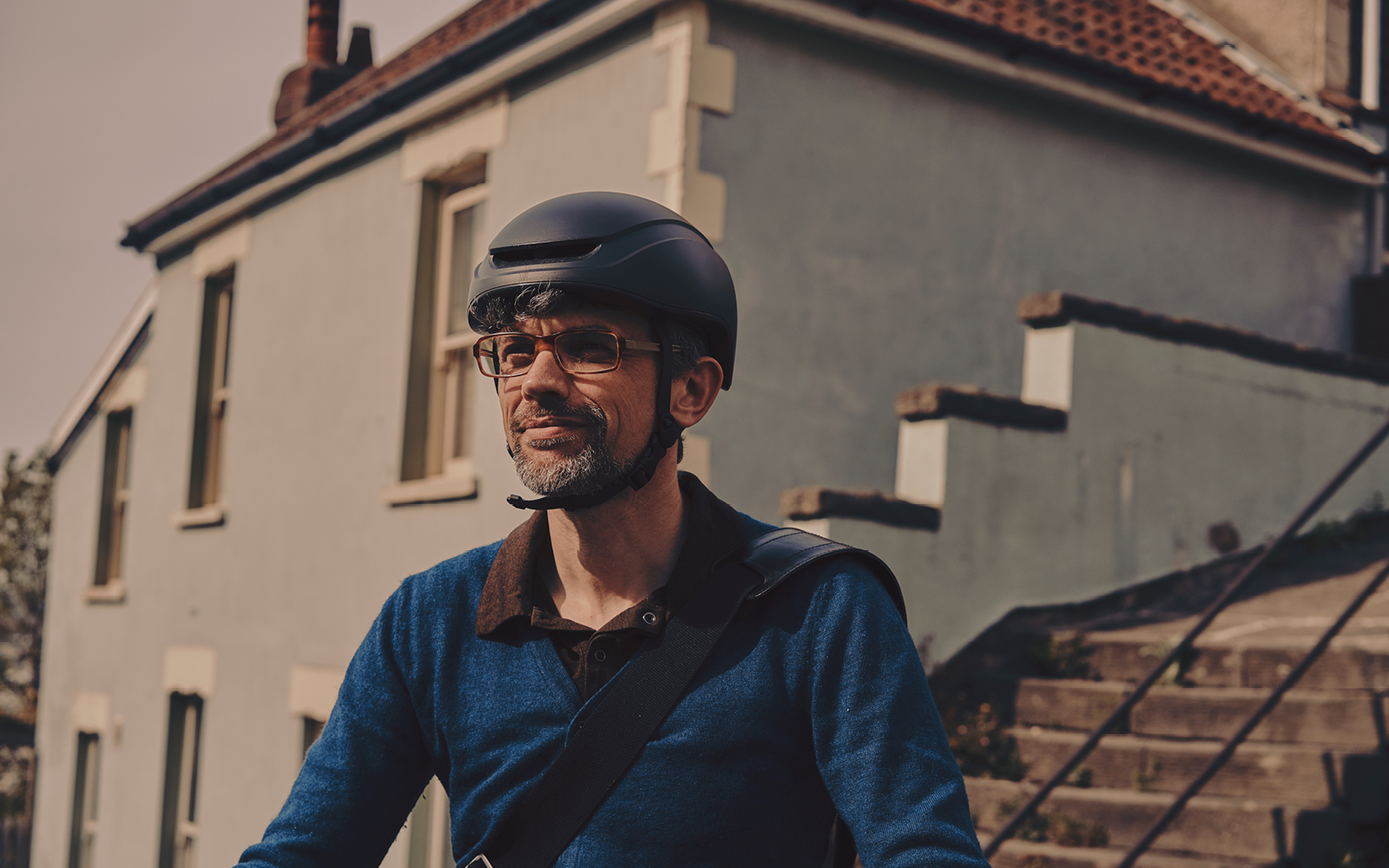
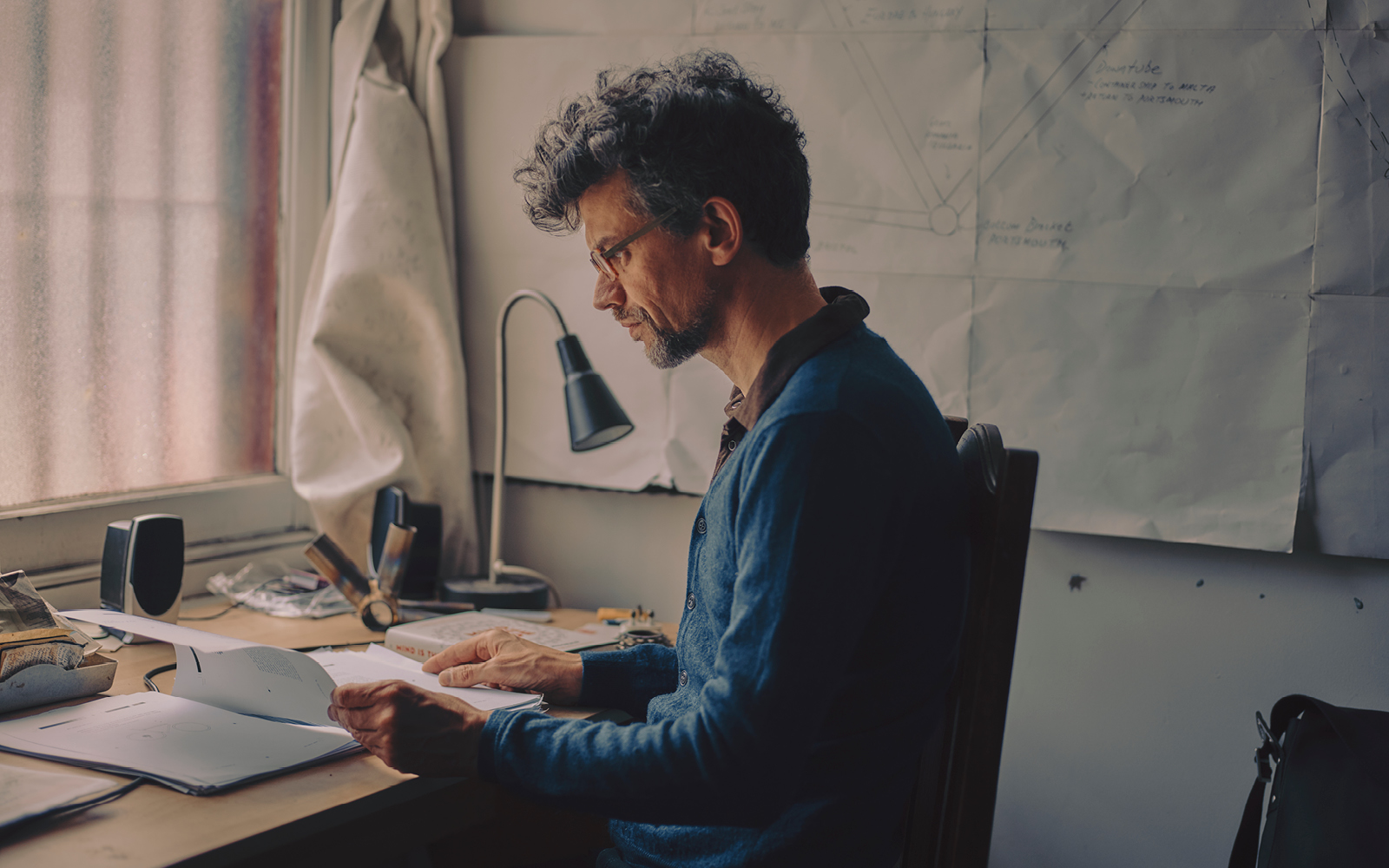
Did you begin your journey with the intention of later writing a book?
No, not at all. The whole point of going was to throw away any objectives. Like a lot of people who are quite creative and ambitious, I was very task oriented and I wanted to throw some of that off and just enjoy being bounced around like a ping-pong ball in everyday life. That’s what happens when you’re on the road, you’re just thinking about how to get your next meal, how to get to the next destination. It sounds corny but you do live in the moment. There’s a paradox in saying I wanted to ride without an objective when I was deliberately riding to India, but the objective is so far away you just have to go from day to day. There’s something very liberating in that.
There’s not a lot of complicated stuff on your to do list, which is presumably both liberating and de-stressing?
Yeah, it’s liberating and de-stressing – that’s a good way of putting it! There are bits that are euphoric, like when you’re freewheeling across the border from Turkey into Iran. But there are also mundanely boring times, terrible really, but the highs and lows test you and test who you are. You find out more about yourself and that in itself is a philosophical journey, made all the better for being a physical journey rather than a purely intellectual venture. In fact, I think it’s more whole in a way, because it incorporates those parts of you that are physical and emotional, wretched and joyous, rather than just reading Sartre and saying “I’ve got it now”.
How did the decision to write the book come about?
When I got back, people said to me, perhaps rather inevitably, “Are you going to write a book about this?” Honestly, it was the last thing I wanted to do; I felt enough people had written books about cycling across continents and there have been some really good ones – Full Tilt by Dervla Murphy is one of my all-time favourites. So it’s been done before, a lot of bold adventurers have told those tales. But then I wondered whether I could use the journey and the bike I’d ridden on as a means to explore something else. I think the bicycle is an amazing vehicle for transporting us to a different intellectual place, so in the book I use the bike as a metaphor and the journey as an analogy to understand different philosophies in a new way.
The book is structured as a journey in itself, each of the 30 chapters beginning with one piece of my bike, so that by the end, it’s been built up from all its component parts. And just like the physical journey I went on from Bristol to India, I’ve gone on a journey from western to eastern philosophy.
As I mentioned before, there’s something analytical or categorical about western philosophy – the world is understood in terms of its parts and you try to understand reality by breaking things down into its components, much like a bicycle. The difference with eastern philosophy is that it is in a broader sense more holistic; it tries to understand things in a wider context. What I find about cycling is that you can become very focussed on all the bike parts and gear, without which you can’t make a bicycle, but that the experience you get from the bike once built is another thing entirely.
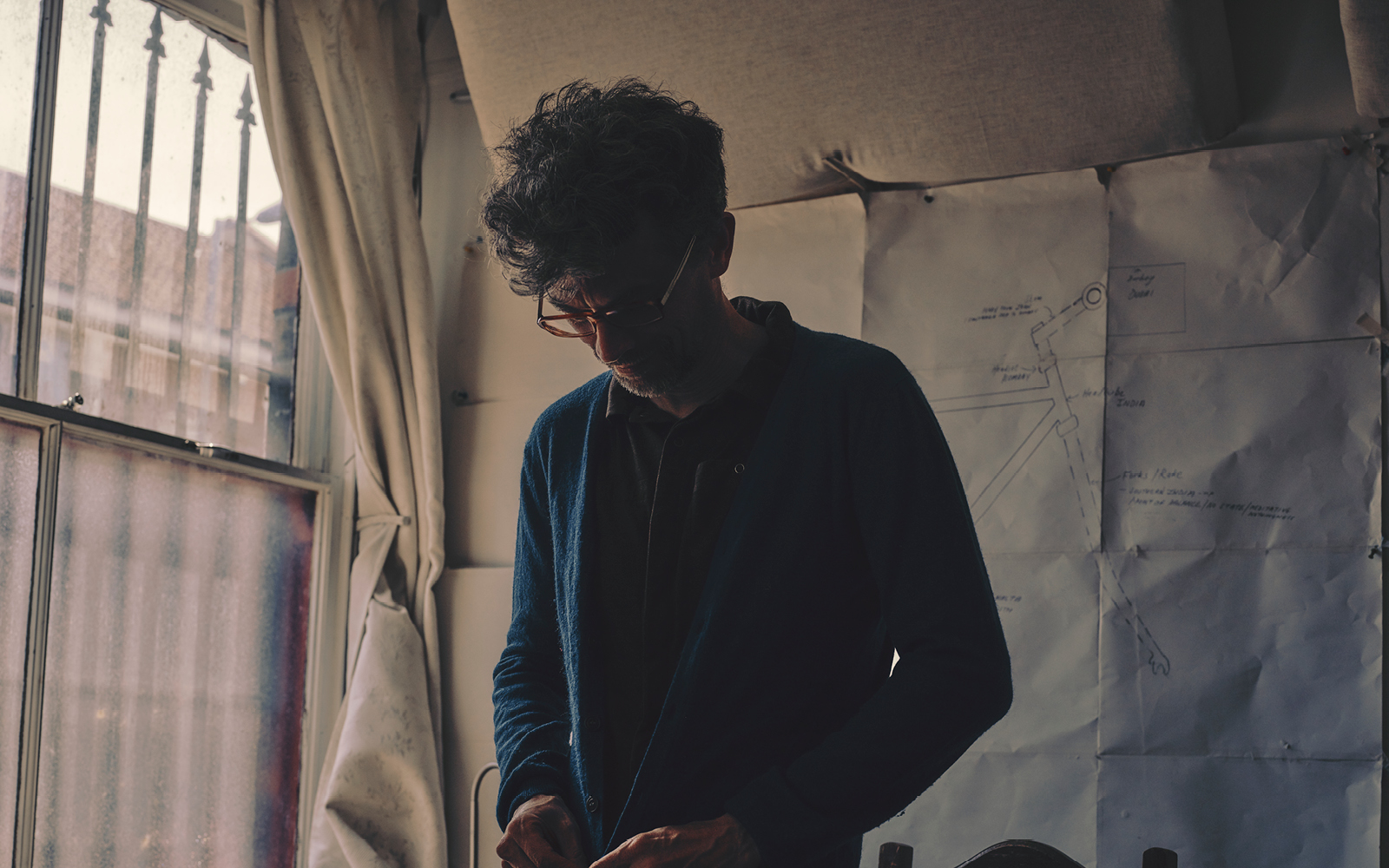
One of the parts of the bike I was going to ask you about was the saddle. You did it on the B67, so what was your relationship with that like?
It was the most important part of the bike! I wanted a saddle that would be comfortable over a long distance, and it was important that there was a spring in it because many of the roads wouldn’t exactly be smooth. That saddle has a good balance of a stiff and compliant base for my hipbones with the added bonus of a bit of flex for when rattling down a Romanian hillside.
I think what’s interesting about leather saddles is that they do become part of you, helping you connect with the bike in a more physical way. I think the way a bike is put together reflects the human skeleton and a leather saddle makes it feel like my hip bones are more connected to the skeleton of the bike.
How long did the book take and how did you go about getting it published?
The book took a lot longer to write that it did to ride from Bristol to India. It took a good two to three years and was a big undertaking because every chapter is based around a different philosophy. I’ve clearly got an interest in it, but I certainly wasn’t familiar with the whole scope of eastern philosophy, so a lot of time was spent reading before I could write about the topic in detail.
Finding a publisher before that took almost two years. It’s quite an unusual book which covers a lot of different areas; it’s not purely a travelogue, it’s not a book purely about cycling or philosophy, or a book about mind or consciousness, so finding a publisher that would take a punt on a book that was literally cycling between genres was challenging. There were plenty of publishers who were interested but were nervous about taking the final plunge, so in the end we crowd-funded through a publisher called Unbound who are more prepared to take risks on interesting projects.
Jet McDonald’s Mind is the Ride is available now in paperback.
Featured products
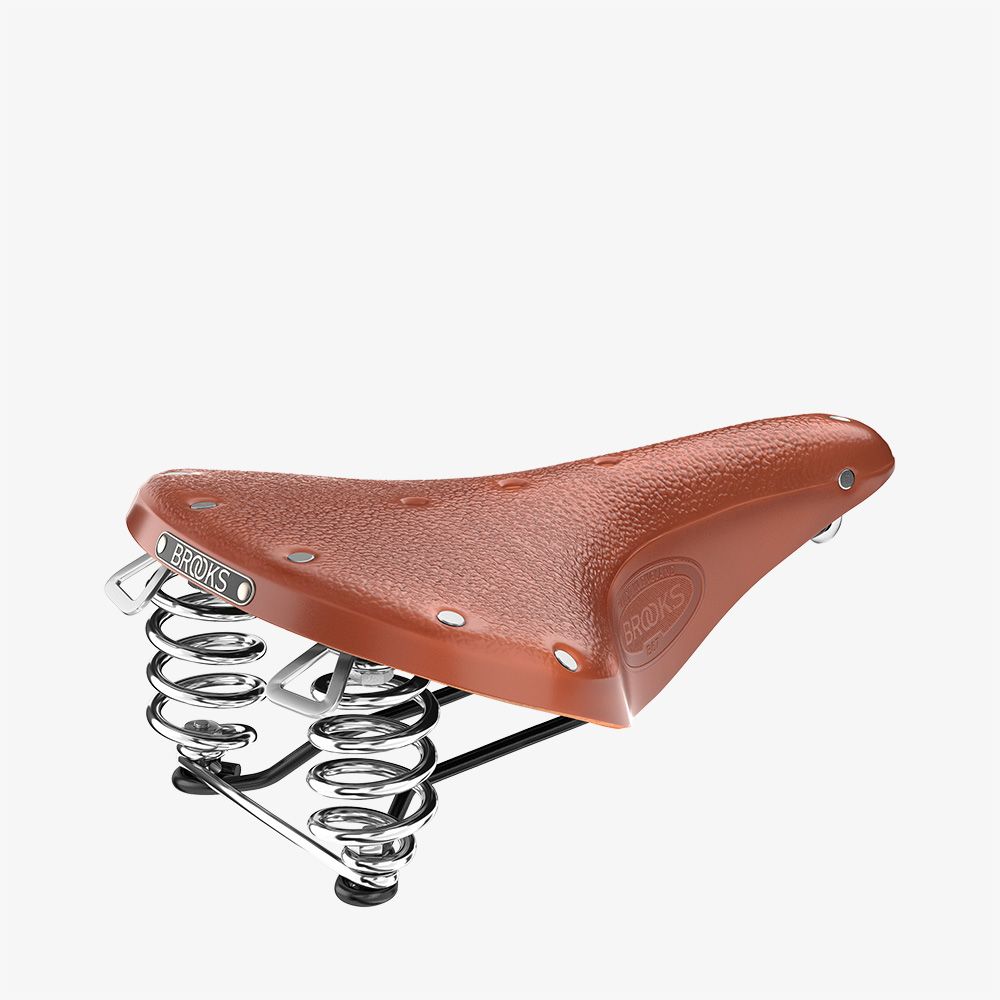
B67
A sprung saddle for enduring comfort. The perfect seat to carry you across continents.
DISCOVER MORE
Slender Leather Grips
Take a firm grip on proceedings with these durably comfortable handlebar grips.
DISCOVER MOREMore People Stories
Steve Green, part of the Brooks factory family
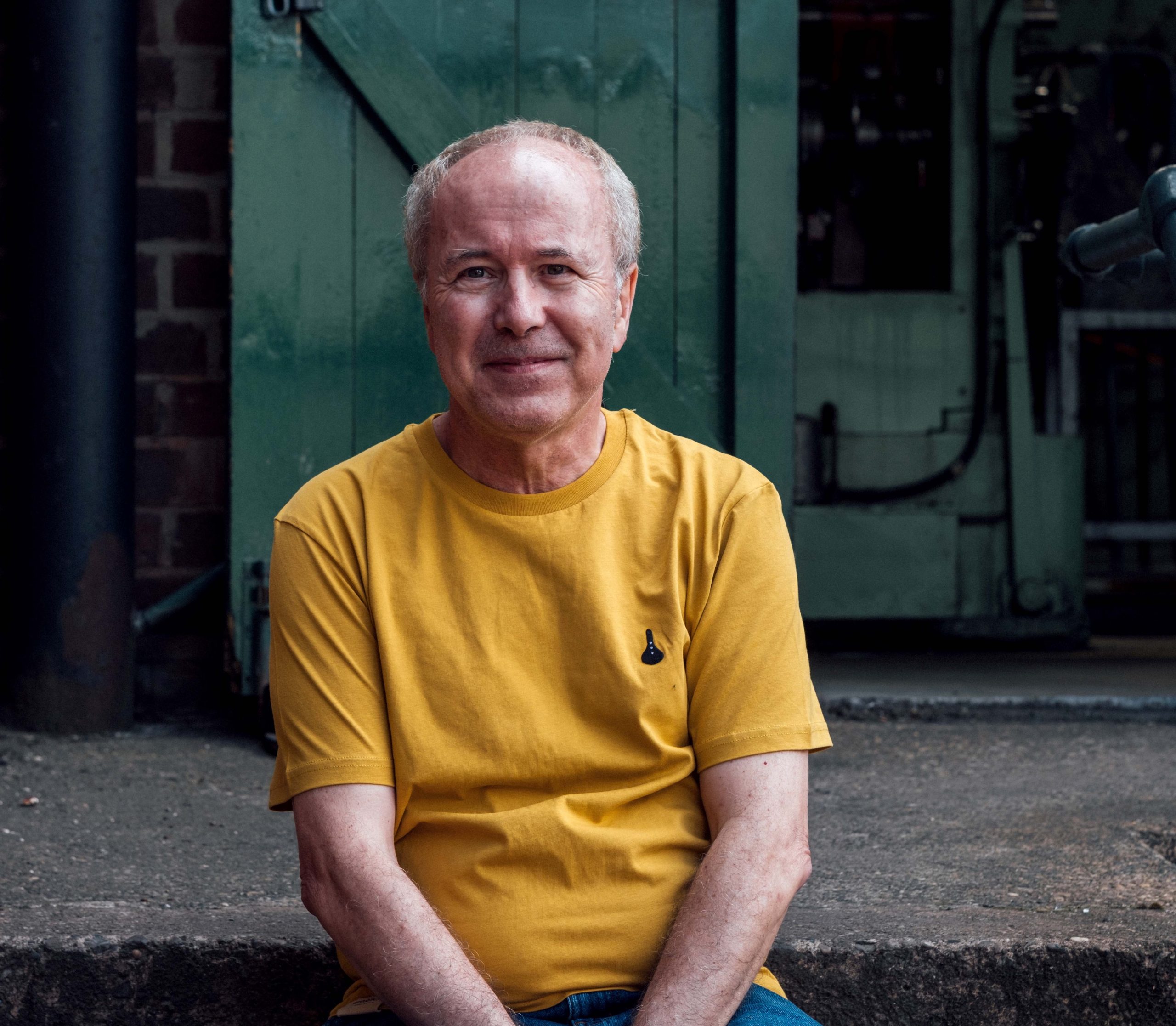
Steve Green has worked at the Brooks factory in Smethwick for more than 40 years.
READ MOREErwin Sikkens… the dadventurer
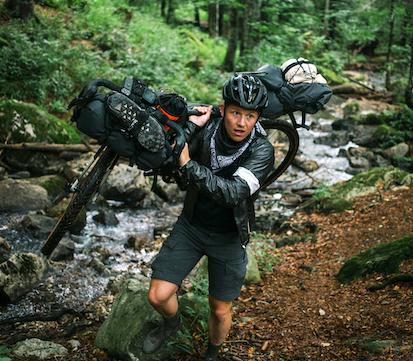
New Brooks ambassador Erwin Sikkens is a bikepacking gravel route deviser, and won’t let being a dad diminish his sense of adventure. Quite the opposite in fact!
READ MOREMr Imperfect… meet Allan Shaw
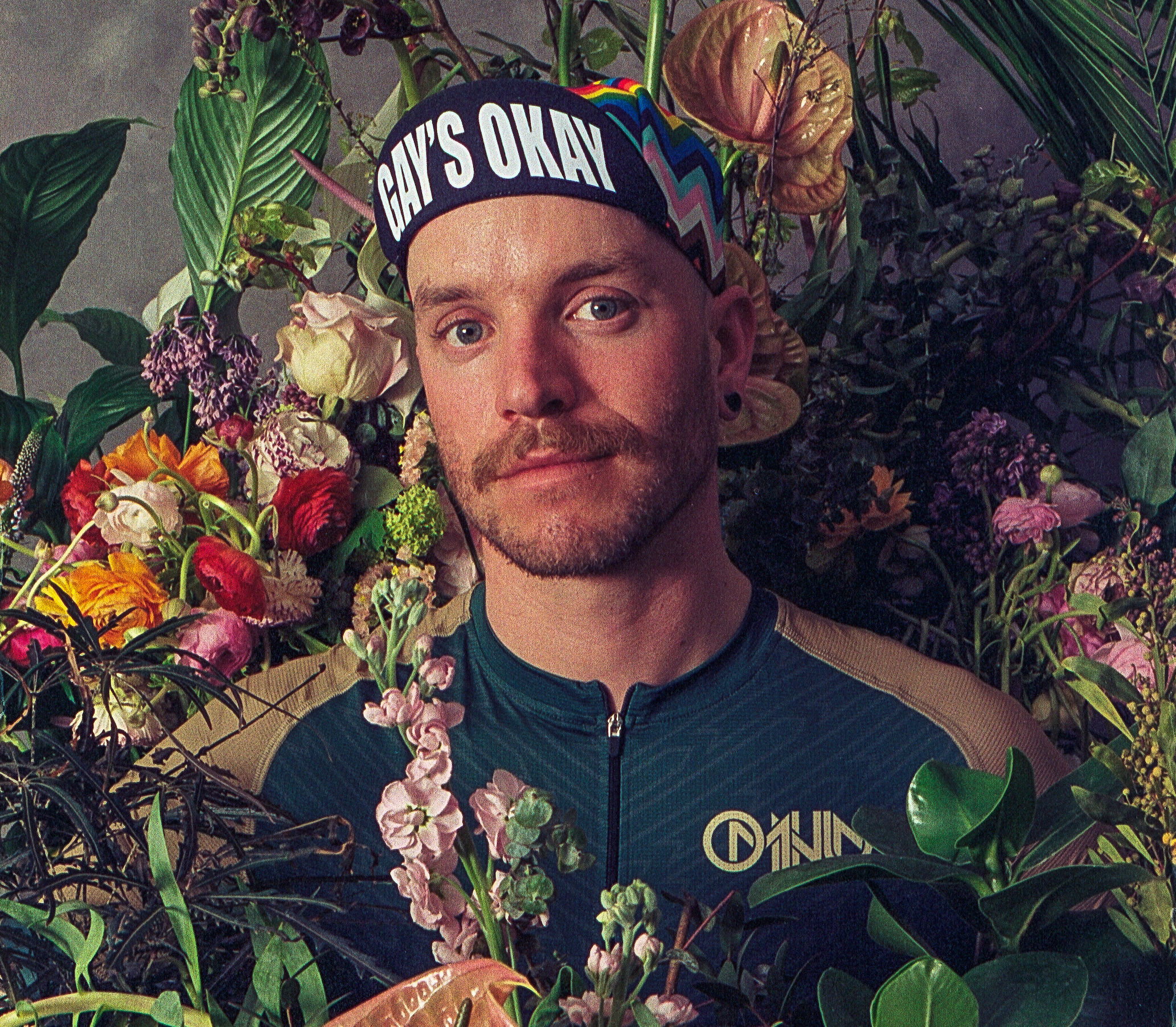
Discover Allan Shaw’s philosophy of anti-elitism, pro-imperfection, and eternal optimism.
READ MORE


